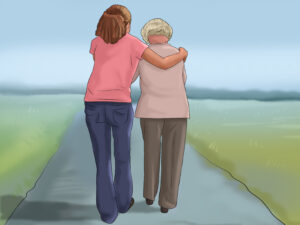Back to: Religion and National Values Primary 2
Welcome to class!
In today’s class, we’re going to be talking about greetings and respect to elders in the community. I trust you will enjoy the class!
Greetings and Respect to Elders in the Community

Greetings and respect to elders in the community are important topics to learn for primary school pupils. They help us to show appreciation, kindness, and good manners to the people around us. Here are some points that you can use to create your class notes:
– Greetings are polite words or actions that we use when we meet or communicate with someone. For example, we can say “Hello”, “Good morning”, “How are you?”, etc. We can also smile, wave, nod, bow, shake hands, hug, kiss, etc. depending on the situation and the culture of the person we are greeting.

– Respect is a feeling of admiration or appreciation that we have for someone who is older, wiser, or more experienced than us. Respect also means treating someone with kindness, courtesy, and dignity. For example, we can listen to their advice, follow their rules, help them with their needs, etc.
– Elders are people who are older than us, such as our parents, grandparents, teachers, relatives, neighbors, etc. Elders have more knowledge, wisdom, and experience than us, and they deserve our respect and gratitude. Elders can also teach us valuable lessons, guide us in our decisions, and support us in our challenges.
– In the community, we can show greetings and respect to elders in different ways, depending on the culture and the tradition of the people. For example, in some cultures, we can prostrate or kneel down to greet our elders, while in other cultures, we can shake hands or bow to them. We can also use different languages or titles to address them, such as “Sir”, “Ma”, “Baba”, “Mama”, etc.
Some benefits of greeting and respecting elders in the community are:
– It makes them happy and appreciated.
– It builds trust and friendship between us and them.
– It shows that we are well-behaved and well-mannered.
– It helps us to learn from their experiences and wisdom.
– It promotes peace and harmony in the community.
We should greet and respect elders in the community because they are older, wiser, and more experienced than us. We can use different words, gestures, and languages to greet them, depending on the culture and the tradition of the people. Greeting and respecting elders can make them happy, build trust and friendship, show good manners, help us learn, and promote peace and harmony.
Question Time:
- What does respect mean and why is it important?
- Who are the elders in the community and what can they teach us?
- How can we show respect for elders in different cultures and traditions?
- What are the benefits of greeting and respecting elders in the community?
- How can we show respect for constituted authority in the school and in the society?
